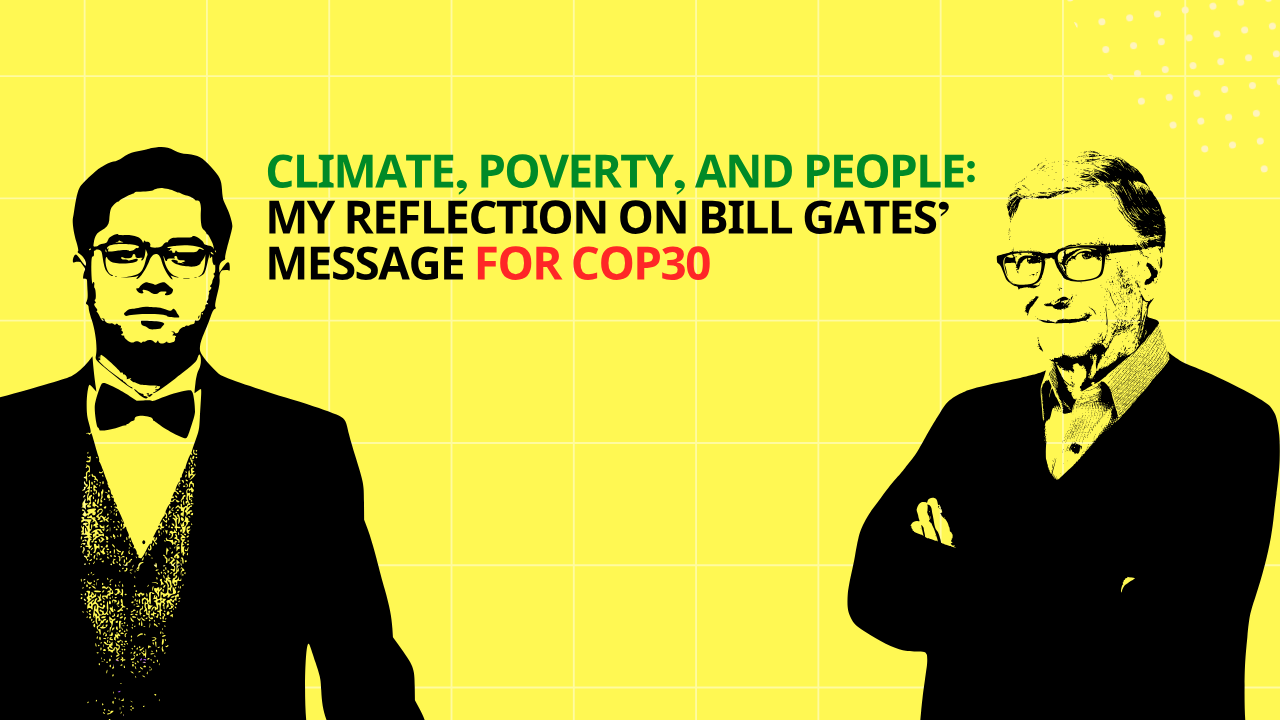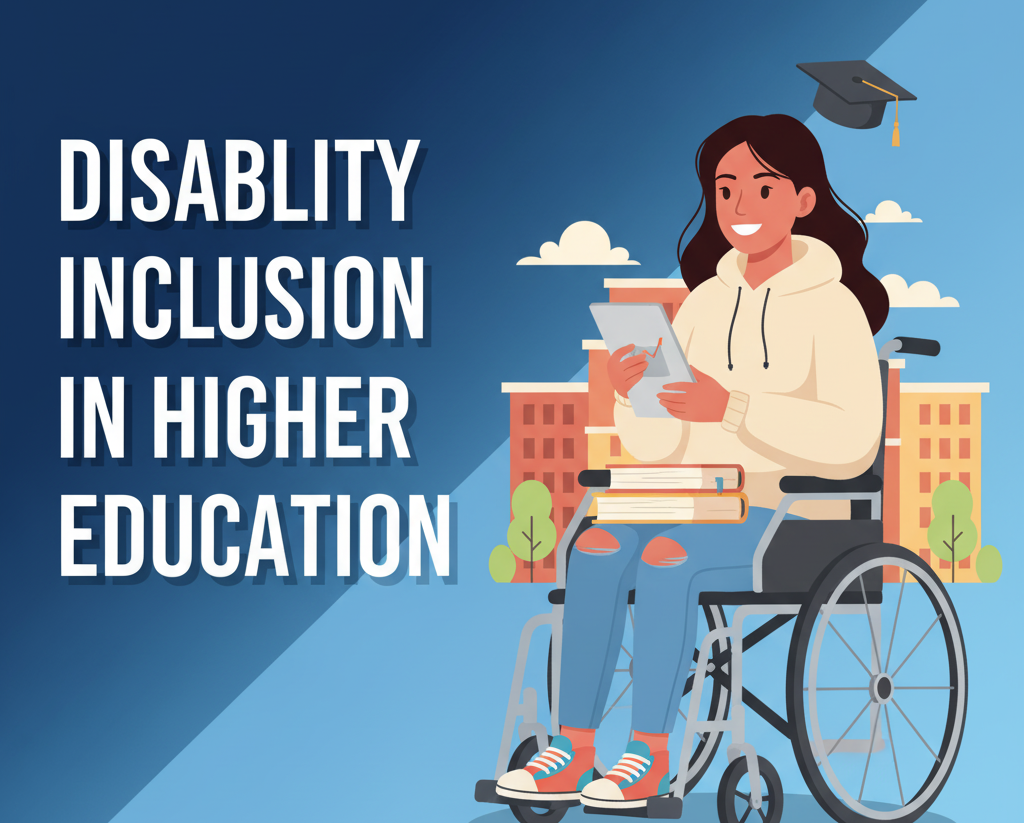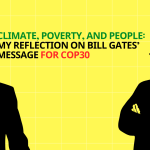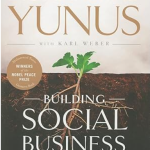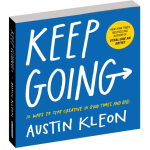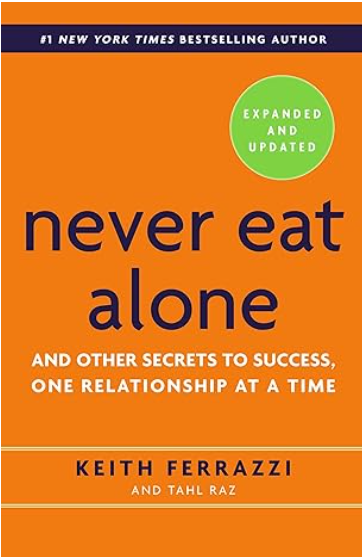
Never Eat Alone by Keith Ferrazzi | A book summary for youth

Quote 1:
“Success in any field, especially in business, is about working with people, not against them.”
Quote 2:
“The currency of real networking is not greed but generosity.”
Quote 3:
“If your name is not out there, you are out of business.”
Keith Ferrazzi didn’t grow up in wealth. His father worked in a steel mill in the U.S., and his family often struggled to make ends meet. But from a young age, Keith noticed something powerful—people who had strong relationships often found doors opening for them, even when their skills or resources were limited. That observation became the foundation of Never Eat Alone.

American author and entrepreneur
Picture is collected from here
The title comes from his personal habit: he never ate a meal by himself if he could avoid it. Every breakfast, lunch, or dinner was an opportunity to connect with someone—an old friend, a potential mentor, a colleague, or even a stranger. Over time, these small moments built a vast network of people who knew him, trusted him, and wanted to work with him.
The book stresses that networking is not about self-interest. Instead, it’s about generosity—helping others first. Ferrazzi calls this the “generosity formula”: give without expecting immediate return. This might mean sharing useful information, introducing two people who could benefit from knowing each other, or offering your time to support someone’s project. Over time, these acts of giving create deep, lasting bonds.
He also warns against “waiting until you need something” before building connections. Many people start networking only when they’re job hunting, and it often feels desperate or forced. Instead, Ferrazzi suggests treating networking like tending a garden—you plant seeds early, water them regularly, and only later do you enjoy the fruits.

Another major theme in the book is visibility. Ferrazzi points out that talent alone is not enough—people need to know what you can do. This doesn’t mean bragging; it means actively sharing your work, showing up at events, joining community discussions, and positioning yourself where opportunities are likely to appear. For example, if you want to work in climate action, you don’t just apply for jobs—you volunteer at environmental events, publish your thoughts online, and meet people in the field.
Ferrazzi also emphasizes follow-up. Meeting someone once is not enough. If you meet a potential collaborator at an event, send them a message afterward. Check in occasionally—not to ask for something, but to keep the relationship alive. A small gesture, like congratulating someone on an achievement or sending a relevant article, can keep you on their radar.
What Youth Can Take Away from This
For Bangladeshi youth, Never Eat Alone is a reminder that success is rarely a solo journey. We often hear “networking” and think of it as something for politicians or rich businesspeople, but Ferrazzi shows that it’s for everyone—students, freelancers, entrepreneurs, or even job seekers.
Common Mistake 1: Networking Only When in Need
Many young people in Bangladesh only reach out to contacts when they are desperate for help—like when job hunting. This often feels transactional and fails to build trust.
Fix from the Book: Build your network early. Join community programs, volunteer, attend university events, and connect with seniors in your field long before you need anything.
Example: A group of university students in Rajshahi started attending free seminars and volunteering for local NGOs. When they graduated, many of them got job offers directly through the people they had met years earlier.
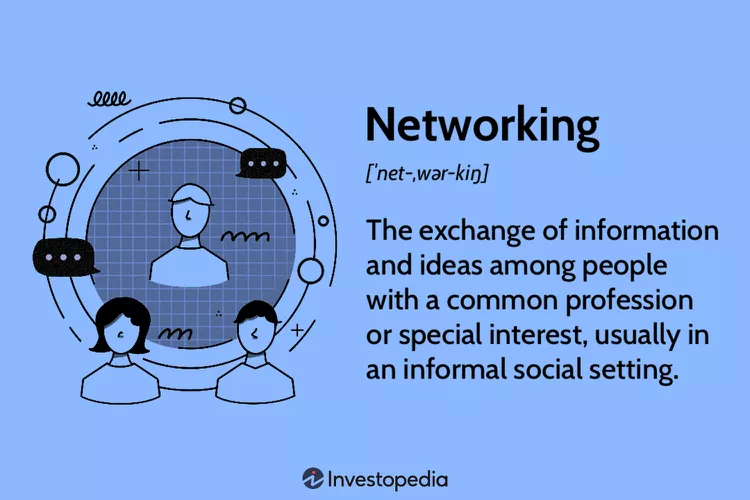
Common Mistake 2: Thinking Networking Is Self-Promotion Only
Some youth think networking means constantly talking about themselves or showing off achievements. This can make them appear self-centered.
Fix from the Book: Lead with generosity. Share useful resources, offer to help on projects, connect people with each other.
Example: A young graphic designer in Chattogram regularly shared free design tips online and helped small businesses improve their logos without charging at first. Later, those same businesses recommended him for paid projects.
Common Mistake 3: Ignoring Personal Connection
In the digital age, many youth think adding someone on Facebook or LinkedIn is enough. But without real conversations, these connections stay shallow.
Fix from the Book: Take time to meet in person or have meaningful online talks. Ask about people’s lives, listen more than you speak.
Example: A Dhaka-based startup founder made it a habit to invite one new person every week for a simple tea or lunch. Over time, this built a strong circle of supporters who helped him grow his business.
Never Eat Alone teaches that relationships are an investment. The more you give, the more you receive – sometimes in ways you can’t predict. For the youth of Bangladesh, this means not waiting for luck, but creating opportunities by building a network of trust, respect, and mutual support.
If you’re 22 and feeling unsure about your next step, start here: reach out to one person you admire, invite them for tea, and offer to help with something they care about. That small step can open doors you didn’t even know existed. Your future isn’t built alone – it’s built together.
Thank for giving me your time while reading this. Getting anyone’s time is the most precious thing for me. To read my other blogs like Building Social Business by Yunus | A book summary for youth, Phobia to Nervous moment? Is it normal?, and The Shondha River Stole My Childhood: Why I’m Fighting Climate Anxiety, you can click here.

